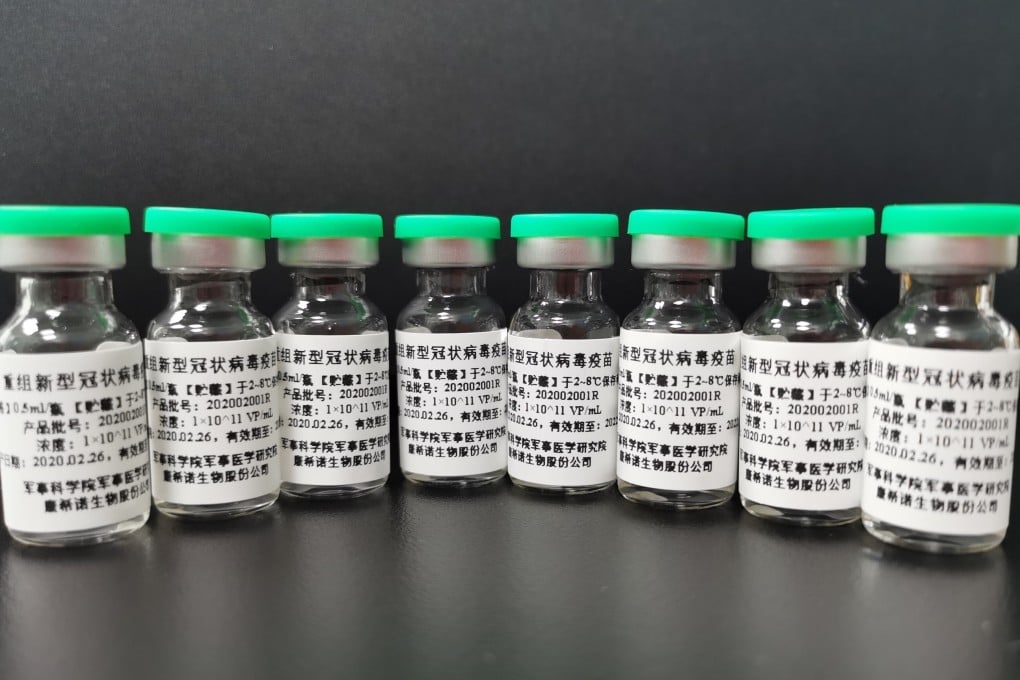China’s CanSino Covid-19 vaccine wins emergency approval in Mexico
- North American country is first to approve the vaccine developed in association with People’s Liberation Army scientists
- Decision follows Phase 3 international trials showing general efficacy rate of 65.7 per cent for single-shot product

Approval was granted as Mexico scrambles to avoid a shortage of vaccines, with Pfizer/BioNTech and Russian Sputnik supplies not expected to arrive until later this month, throwing the country’s vaccination programme into disarray. So far, Mexico has received 760,000 doses of the Pfizer vaccine, with just 89,000 left, according to Associated Press.
Mexico signed an agreement last year with CanSino, based in the northeastern Chinese city of Tianjin, for 35 million doses of its vaccine.
The CanSino approval was announced on Wednesday, just days after Pakistani Health Minister Faisal Sultan said on Twitter that interim data from international trials of the vaccine had shown a general efficacy rate of 65.7 per cent.
Sultan said the trials – which involved 30,000 participants and saw 101 infections reported in vaccinated placebo groups – also showed the CanSino shot was 90.98 per cent effective in preventing severe cases of the disease. In the Pakistan subset of the trials, the vaccine had an efficacy rate of 74.8 per cent, he added.
CanSino quoted Sultan in its announcement of the Mexican approval, without giving further details. The company said Mexico’s decision was based on the interim results of phase 3 trials, which are also taking place there. In addition to Pakistan and Mexico, CanSino is holding trials in Russia, Chile and Argentina.
The CanSino vaccine is the second single-dose shot to be approved, after the one by Johnson and Johnson, which has reported an efficacy rate of 65 per cent for its product.